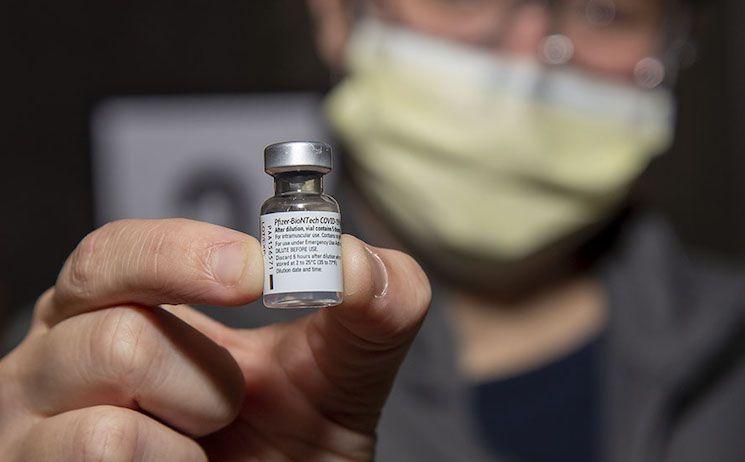The gut is on everyone’s minds these days. Whether it’s ads for probiotics littering your social media feed, or the countless articles about how to “reset” your gut, the digestive tract has reached a kind of star status once reserved for the heart. It can seem like the gut has been imbued with an almost mystical power, and if you could just figure out the right way to care for it, all kinds of troubles might evaporate. It could surprise you to learn, then, that many scientists agree: We don’t really know what a healthy gut is. The human intestine, it turns out, is a far more complicated place than anyone realized a few decades ago. A collection of trillions of bacteria and other microbes, known as the gut microbiome, live in the intestine and feed, in part, on the components of food the body can’t break down on its own, including fiber in fruits and vegetables. As the microbes feast on these leftovers, they pass on some of the nutrients to their hosts — that’s us — and, scientists are realizing, may be influencing vital functions such as blood regulation and immunity. Researchers are continually uncovering new ways that the gut microbiome seems to be talking to the body, subtly altering its functioning. But we don’t know yet how to connect the contents of someone’s gut with the impact on their overall health, says Rachel Carmody, a professor of human evolutionary biology at Harvard University who studies diet and the microbiome. Studies suggest that healthy people tend to have more diverse microbiomes. But it’s not clear if that’s a cause of good health, or an effect. Advertisement In addition, microbiomes vary widely by the individual, says Joel B. Mason, a professor of medicine and nutrition at Tufts University and gastroenterologist at Tufts Medical Center. “What’s an appropriate microbiome for one person is probably not necessarily appropriate for another person,” he says. The microbes are not as mutable as you might think, either. Research suggests that for most people, taking dietary supplements packed with bacteria or yeast, known as probiotics, or eating foods that contain bacteria, such as yogurt and sauerkraut, isn’t a very effective way to shape the microbiome. Advertisement And yet people are curious about whether they should try to alter their microbiomes in some way, acknowledges Megan Rossi, a research associate at King’s College London and founder of TheGutHealthDoctor.com. “There are poop tests that say they will personalize your diet based on your microbiome,” she says. “In truth, this is just ahead of where the research is at.” All this uncertainty makes it tricky, then, to say what a healthy gut is, and how to maintain it. Still, one reasonable definition of a healthy gut is one that isn’t causing you discomfort, bloating, constipation, or diarrhea, says Mason. And we do know a few important things about how to help keep it that way. 1. Remember, you are what you eat Diet helps shape the microbiome and the health of the gut tissue itself, though not always in the way you might expect. A common misconception is that if you eat food containing live microbes, such as yogurt, they will take up residence in your gut. But “most of these bugs coming in are not surviving passage,” says Carmody. They are destroyed on the way through the stomach. Advertisement Those that survive face a gut packed with established microbes, where there may not be room for newcomers. And because the connections between individual microbes and health aren’t yet clear, it’s hard to say whether you’d want the particular bacteria in a given food item living inside you. The unsatisfying truth is that we don’t really know, Carmody says. It makes more sense to think of your food as feedstock for what lives within you. Eat a diet solely of crackers and cheese, and you encourage the growth of bacteria that thrive on those ingredients. “If you ate copious amounts of yogurt or kombucha, it will change the microbiome for sure,” Carmody says. But that’s because you are selectively feeding whatever in your gut likes to eat yogurt and kombucha. “There’s no one-size-fits-all approach for managing gut health,” she says. “It all depends on context.” 2. Eat plants — a variety of them We’ve known for a long time that making plant foods a substantial part of one’s diet is linked to better overall health, Rossi says. But when it comes to gut health, variety may matter, too. A 2018 study found that people who ate more than 30 different types of plants a week had notably more diverse microbiomes. That makes sense, if each different plant feeds the growth of a different subset of gut bacteria. If you are interested in having a diverse microbiome, eating more plants is a reasonable, evidence-based approach. Advertisement “Plant foods contain a lot of things that can maintain and promote gut health,” says Teresa Fung, a registered dietitian and professor of nutrition at Simmons University. Replacing meat with beans and peas is a simple way to bring a greater variety of plants onto your plate, she says. If you are someone whose gut gives you trouble — if you are, say, part of the 11 percent of the global population thought to have irritable bowel syndrome — remember that not every plant food may agree with you, Rossi says. Legumes, onions, and garlic may be beneficial for many, for instance, “but for people with IBS, we know this can irritate a sensitive gut.” In her clinical work, Rossi helps patients work toward digesting these foods more easily, starting by eating small amounts and increasing gradually. 3. Keep an eye on what comes out It sounds gross, but one basic way to keep on top of gut health is to be aware of changes in, well, what the gut produces. And you don’t have to bring the topic up around the water cooler to get a sense of what’s normal. There are numerous charts produced by medical professionals that show the range of stool shapes and textures considered healthy. Google the Bristol Stool Chart, for example, and get a sense of where you stand. If something seems off, talk to your doctor. 4. Get up to speed on probiotics It’s easy to get the sense that probiotic supplements are a shortcut to better gut health; just check out the shelves at your local chain pharmacy. But there isn’t much support for that at the moment, Mason says. “People have developed the idea that they are a panacea and everyone should be taking a probiotic,” he says. “And I think if one is going to adhere to scientific evidence, there are only a few scenarios where they have been compellingly shown to provide some benefit to health.” Advertisement Some studies have found that taking specific probiotics may help prevent traveler’s diarrhea, though an analysis of existing research published in 2018 found the effect was limited to probiotics containing a yeast called S. boulardii. There is some evidence that certain probiotics may help prevent antibiotic-induced diarrhea, a side effect experienced by up to a quarter of people. The Office of Dietary Supplements suggests that S. boulardii, among others, may bring down the risk in people under the age of 65, especially if taken within two days of the first dose. Indeed, if probiotics ever do find a niche in regular clinical practice, it’s likely to involve specific strains being used for specific purposes, Rossi says. “They’re not all nonsense. But the vast majority on the shelves are nonsense,” she says. “If you just want to generally improve gut health, don’t take a probiotic. Just eat your plant diversity.” While you might assume that taking a probiotic can’t hurt, there are groups of people, particularly the immunocompromised, for whom it could be a fatal miscalculation. “When you consume a probiotic, you are taking in billions of bacterial or yeast spores,” Mason says. “And even though those organisms, under normal circumstances, are considered to be ‘good’ bacteria or yeast . . . there are now reported instances where what are normally considered to be beneficial bacteria set up serious infections in those individuals.” It’s always wise to talk to your doctor when considering taking dietary supplements. 5. Be patient Rossi expects that at some point it will be possible to use information about one’s microbiome proactively. She and her colleagues are investigating the role of the microbiome in menopause symptoms. Carmody, meanwhile, is part of a team studying how exercise may affect the microbiome, using mice populated with gut microbiomes from ultramarathoners. When people decide to get healthier, they usually turn first to diet and exercise, she says. “But we know comparatively quite little about how exercise affects the microbiome.” Indeed, there seem to be more questions than answers when it comes to managing our microbiomes. But that is likely to change. “This is a rapidly moving field. What I say today might not be scientifically correct three years from now,” Mason says. “We are learning more and more about the importance of the microbiome . . . But we are right now in a stage where we don’t know exactly how to translate that knowledge we are accumulating into clear-cut recommendations for health care.” What seems clear, however, is that the next frontier of understanding our health will increasingly be linked to the world living inside of each of us. Veronique Greenwood is a science writer based in the United Kingdom. Send comments to [email protected].
This content was originally published here.




















